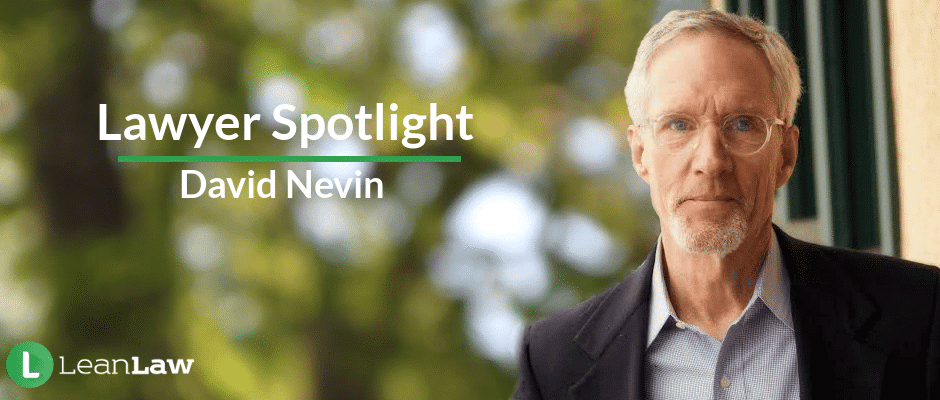Spotlight: David Nevin Lawyers are Heroes


David Nevin has defended criminal cases throughout the United States for almost 40 years. He has obtained acquittals in a number of high profile prosecutions which implicated issues of civil rights and government overreaching. Mr. Nevin currently serves as Learned Counsel for Khalid Shaikh Mohammad in his capital prosecution at Guantanamo Bay, Cuba, arising from the attacks on New York and Washington, D.C. on September 11, 2001. Mr. Nevin is appointed and paid by the Convening Authority of the Military Commissions pursuant to the Military Commissions Act of 2009.
What is your area of practice and why did you choose that?
My area of practice is criminal defense and I didn’t exactly choose it. My clerkship at the Idaho Supreme Court was coming to an end, and a job became available at the Ada County Public Defender’s Office. I thought I wanted to do other things, but as soon as I got involved in the work, I found that I really loved it. By luck, I ended up in just the right place for me. That was 38 years ago.
What makes criminal defense just the right place for you?
I think representing people – real people – who have been charged with committing crimes is the most interesting and challenging legal work there is. I grew up in the civil rights era in the South, and the widespread institutionalized injustice was obvious. Representing individuals and opposing authority came naturally to me, at least in part because of that.
What’s the most valuable thing you do for your clients?
Well you of course search for a solution to their legal problems. And people who are charged with committing crimes frequently have a complex array of problems facing them — but pretty much everyone feels the oppression of being condemned in a large or small way by the community. One of the really important things you do as a criminal defense lawyer is just the simple act of saying, I see you as a human being, I’m on your side, you’re not just a “defendant” to me.That can be a big part of solving the legal problems, too.
How do you gain that trust?
Everybody’s different. Some people understand the lawyer’s role and the legal process right away.
At the other end of the spectrum are people, particularly from foreign cultures, who don’t really understand what lawyers in the United States do. They may have very few mechanisms for understanding what you’re doing, and thus for trusting you. You might spend years developing their trust and you might in fact, never completely develop it. All you can do is be diligent and be yourself and do what you say you’re going to do.
How does one become Khalid Shaikh Mohammad’s lawyer?
I defended a so-called material support to terrorism case, here in Idaho in 2003-2004. It was a groundless, poorly thought out prosecution. After that case, I ended up doing similar cases in other places around the country. And when you do that, you meet people and make associations.
When the Department of Defense and the Department of Justice decided that they were going to prosecute these cases in military commissions, there was a shortage of military defenders with capital experience or experience in cases that involved allegations of terrorism. When the ACLU’s Executive Director, Anthony Romero saw this, he put together the John Adams Project and brought lawyers from around the country, who had experience in these kinds of cases, and assigned two of them to each of the five defendants. That’s how I originally got involved.
When the government changed the Military Commissions Act and the National Defense Authorization Act in 2010, it authorized the appointment of civilian lawyers to be paid at government expense — one person for each of the five defendants who was “learned in the law of capital punishment.” And so I became the learned counsel for Khalid Shaikh Mohammad in the Spring of 2008.
How do you respond to people who don’t think you should be representing some of the clients you do – because they don’t deserve the best defense?
I don’t think many people truly believe that. I understand the reaction that people have to terrible events – I have those reactions, too. But the problem with that view, is that it incorrectly assumes that the presumption of innocence is optional.
If you take the position that “everyone knows” a person is guilty and therefore should have a less fair process than others, you’ve walked right past the presumption of innocence. And soon you’ll have done away with fairness altogether. The constitution was intentionally designed to protect everyone, even people “everyone knows” are guilty. Most people understand that.
LeanLaw believes that lawyers are heroes, critical to the rule of law in a free society. To find out more information about David Nevin, go to nbmlaw.com. If you know a heroic lawyer whom we should spotlight, please let us know in the comments below.
Join the LeanLaw Movement!